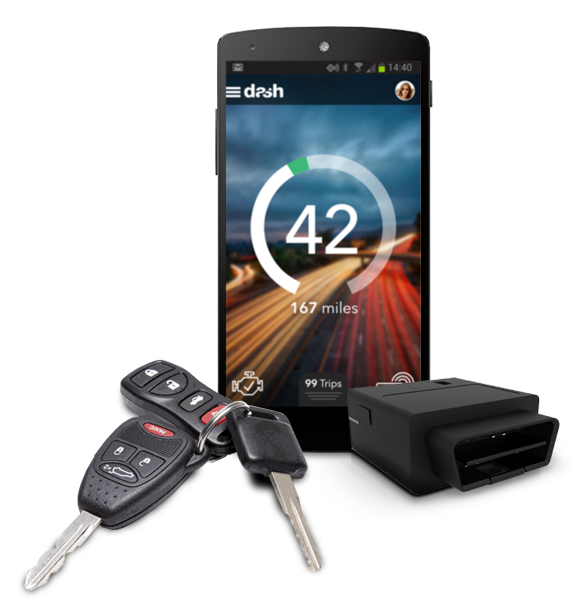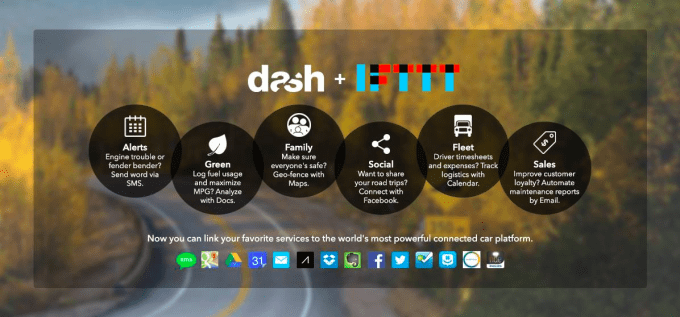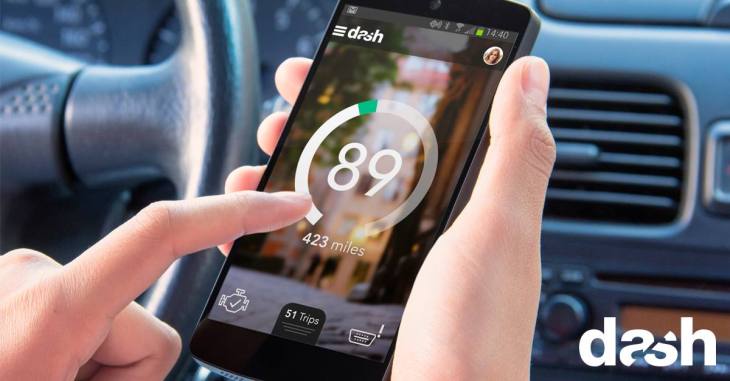Dash, a smart driving app that’s something of a “Fitbit for you car,” is now rolling out a series of updates, including integration with notifications platform IFTTT, as well as an API for third-party developers, and more. The company has also beaten competitors to an international launch, which is a notable milestone for apps like this. According to CEO Jamyn Edis, Dash has now been downloaded in over 100 countries, where Dash has been localized to support foreign car models (like Renault, FIAT, etc.), as well as things like Kilometers per Hour, Imperial Gallons, and Celsius.
Largely, these are European countries, in addition to Canada, parts of the Middle East and Africa.
For those unfamiliar with Dash, it’s one of a handful of newer mobile applications on the market which aim to connect your vehicle to the “cloud,” in order to provide more information about your driving habits, trip details, and vehicle diagnostics – like what that “check engine” means, for example.

Others in this space include Automatic, Zubie, Carvoyant, CarMD, Torque, Car Doctor, and more. Most, like Dash, work in conjunction with a simple Bluetooth-enabled OBD device that’s plugged into a port on later-model cars (those built after 1996 have this port). The device communicates with the driver’s smartphone, sending data to Dash’s mobile app which then interprets that data in order to suggest performance enhancements, potential cost savings and more.
Since Dash’s launch on Android, the app has grown to reach roughly 50,000 Android users – more than some of its competitors have on the platform today. However, that doesn’t necessarily mean Dash is the most popular connected car app – after all, Automatic launched on iOS first, only expanding to Android this April. Dash, meanwhile, had been on Android for several months prior. Plus, Dash has been featured more than once on Google Play, and even was the first hardware/software product solution to be featured there. (This was, of course, before Nest showed up.)
Now Dash is rolling out support for IFTTT, which means users can build simple “recipes” that help link their car’s data and reports to other platforms, like Google, Facebook, Twitter, Foursquare, SmartThings, Evernote, Dropbox and more. Designed for everything from fleet tracking to personal use, the first recipes include geo-fenced alerts, SMS alerts, Check Engine Light alerts, expense tracking, trip tracking, Do Not Disturb notifications (so you’re not bothered by incoming calls when driving), Google Glass integration, smart home integration, and more.
(Automatic launched similar recipes in February.)


In addition, Dash’s core product is seeing a number of improvements and changes too, including increased access to real-time data from more data points and gauges, a trends section that shows your Dash score, fuel efficiency/MPG and driving miles over time, automated VIN decoding (which lets the app recognize what car you’re currently plugged into), integration with automotive info site Edmunds, Android tablet support, and added support for dozens of new OBD devices and car models.
Although Dash is now offering users more data to look through, the company is trying to balance that with a simplified interface, so it won’t be any more of a distraction to drivers than something like a radio or nav system.
“We took great care to follow NHTSA and JAMA guidelines to minimize driver distraction, including reducing visual, manual and cognitive load,” Edis explains. “Now, more users dock Dash on their car dashboard while they are driving, which has increased our average session time from 5 mins to around 20 minutes,” he notes.
The company is also scanning through the data it collects for itself, finding broader driving trends across the U.S., like which drivers are “greener,” which cars get the best driver scores (Volvo), and more.
Later this summer, Edis tells us Dash is planning to roll out its iOS app and developer API. Currently, there are “hundreds of users” providing feedback on the iOS app, he says, while “dozens of third-party developers” signed up to the API called ‘Chassis’.
Dash is currently available here on Google Play.
